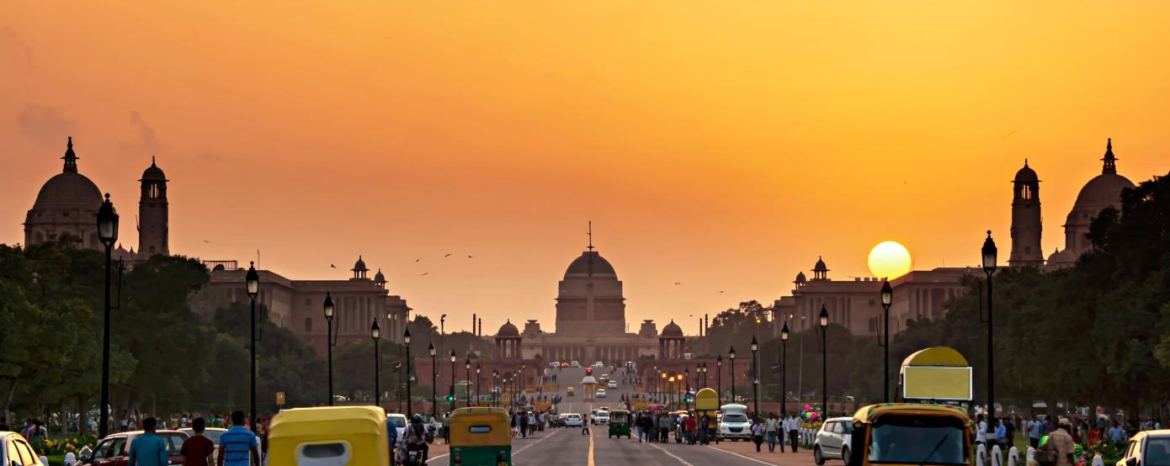Introduction
India has predominantly used scooters and bikes for their daily transport and commute. Therefore, there is a wide scope for this industry especially due to its economical and fuel-efficient vehicles. In view of the above the electric vehicle (EV) market is set to boom in India in the near future.
The first electric scooter ever developed in India was in the year 1996 by Scooters India Pvt Ltd, in the name of Vikram Safa which was a three-wheeler vehicle. Thereafter which the auto company such as Mahindra and Mahindra Ltd. introduced its first electric three-wheeler in 1999, and in 2001, however not much response was received in the early days of the set up and therefore the factory had to be closed down. Between the years 2005 till 2015 India saw a period of huge setback in EV industry due to various issues mainly poor government support and lack of guidance, technological system and infrastructure for EVs. It was in only in the year 2016-2017 that the electric auto rickshaws made the steer in the EV industry by around 500000 e-rickshaws being sold in that year.
At present the government is now focusing its efforts on the boost of use of electric vehicles as most of the cities are heavily polluted. A scheme called as the FAME, or “Faster Adoption and Manufacturing of Electric and Hybrid Vehicles in India,” is launched that shall provide a number of subsidies to 11 selected cities for the launch of electric buses, taxis, and e-rickshaws.
Electric vehicles are environmentally friendly and thus prove to be a good choice for individuals because they have the proper level of functionality. World renowned brands such as Tesla, Mercedes-Benz, Audi, Hyundai, Mahindra, Chevrolet, BMW, and Renault are among the companies producing revolutionary electric automobiles today.
The Glitch
In the recent days, India has witnessed at least six reported cases of EVs ablaze. Unfortunately, this has left a negative impact on the minds of the consumers and many consumers are now wary of buying EV.
It has been seen that the main reason for the EV to go ablaze is due to the faulty battery. Experts believe that Lithium batteries which is used in the EV is susceptible to fire when the temperature increases or when there is an extreme variation in the climate. It is believed that the batteries which are imported are not designed to suit the Indian climate and temperature. Other possibilities such as (a) short circuits; and (b) deformed cells; and (c) insufficient ventilation also cannot be ruled out Therefore it is essential that the manufacture consider designing a state-of-the-art battery for an effective thermal management system/process.
The Government Response
In the wake of this, the Indian government have sprung into action The government has appointed a team of experts that will probe each and every incident and review the entire EV ecosystem. The team will then submit its report to the government after which an expected guidelines related to the testing standards, manufacturing, storage as well as transportation of electric vehicles shall be rolled out by the government.
As per the initial finding of the investigation, the government has considered the option of testing the battery cell of E-scooters before launching them. In furtherance the government has taken samples of cells from the three companies to make further checks. The government is expected to build the infrastructure and expertise in order to conduct these test and soon the results will be published.
Change is necessary. Several Indian companies like Exide, Amaron, Hero MotoCorp, Maruti and even the house of Tatas, have either already taken or intend to take the plunge towards manufacture of EV batteries. These Companies should adequately take the Indian climatic conditions and other applicable factors into account and reduce risk of EV fires.
Conclusion
The electric mobility push is critical for India’s climate change and carbon reduction goals. India’s intended plan is to ensure that e-scooters and e-bikes make up 80% of total two-wheeler sales by 2030, which is about 2% today.
By 2024, the Indian government hopes to have made arrangements and provided incentives to encourage more people to purchase Battery Electric Vehicles, which will account for 25% of all new car registrations. A two-pronged strategy must be implemented for this to happen. First and foremost, India must become truly EV-ready by establishing the required infrastructure and technologies to support electric car manufacture. Second, facilities must be made so that outdated vehicles can be retrofitted to become hybrid electric vehicles, which will help to reduce pollution levels.




